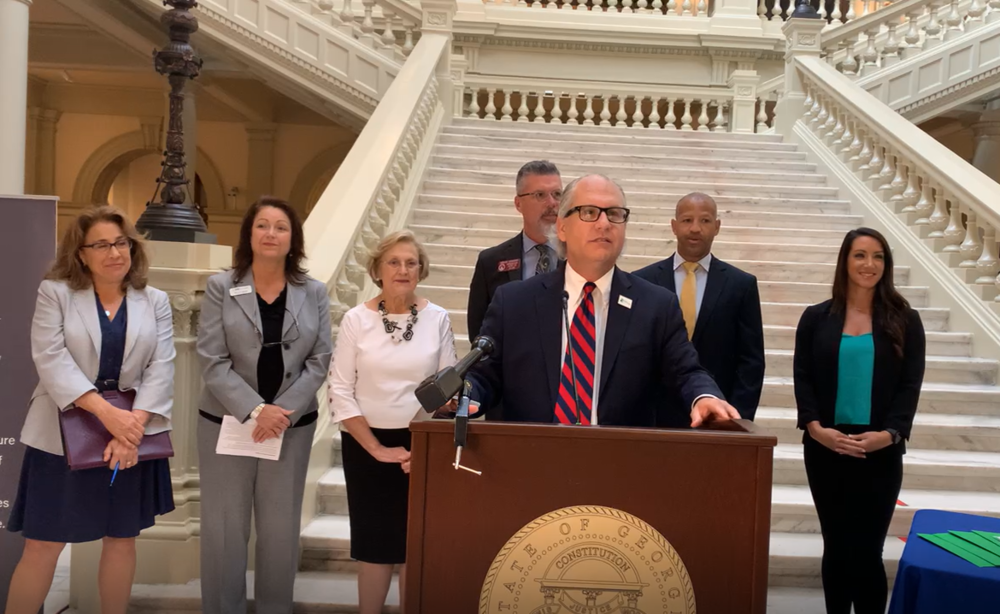
Caption
Members of the Georgia Mental Health Policy Partnership and the substance use disorder community introduce their "unified vision" for transforming mental health and substance use care Monday July 12, 2021, at the state Capitol..
Credit: Georgia Council on Substance Abuse


